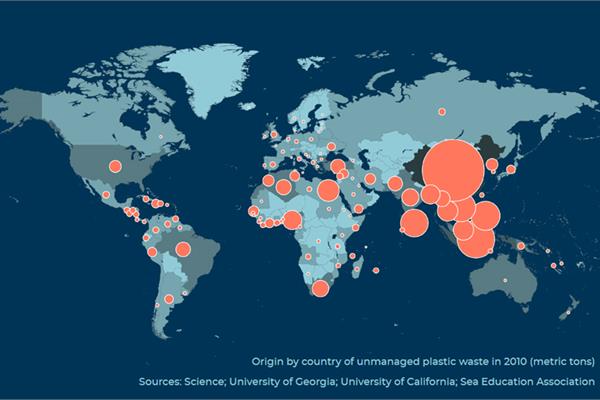
In January 2019, about thirty major global companies belonging to the petrochemical and plastic sector signed a collective agreement to take action against the pollution caused by plastic waste, founding the Alliance To End Plastic Waste (AEPW).
In modern society, plastic is a matter of global interest and its use is often the focus of heated debates. It is a true modern dichotomy: if on the one hand it brings several advantages - a lower production and usage costs, it is light and hygienic, it preserves food without contaminating it and can be used in various fields and sectors – on the other, it causes one of the most serious and widespread forms of pollution.
To counter the global issue arising from the dispersion of plastic in the environment, especially in the marine one, about thirty corporations, including BASF, Covestro, Clariant, Dow and DSM, have joined under the aegis of Alliance To End Plastic Waste, investing more than $ 1 billion with the goal of allocating $ 1.5 billion over the next five years to fight against plastic waste.
"Everyone agrees that plastic waste does not belong in our oceans or anywhere in the environment. This is a complex and serious global challenge that calls for swift action and strong leadership. This new alliance is the most comprehensive effort to date to end plastic waste in the environment. I urge all companies, big and small and from all regions and sectors, to join us", explains David Taylor, CEO of Procter&Gamble and President of AEPW
AEPW is a not-for-profit organization, partnering with the finance community, government and civil society, including environmental and economic development NGOs.
"History has shown us that collective action and partnerships between industry, governments and NGOs can deliver innovative solutions to a global challenge like this. The issue of plastic waste is seen and felt all over the world. It must be addressed and we believe the time for action is now", says Bob Patel (LyondellBasell), vice-president of AEPW.
Facts about plastic waste
Research conducted by Ocean Conservancy shows that almost 80% of plastics that end up in the sea comes from land-based sources and is transported by rivers.
Scientists of the Center Helmholtz for environmental research have studied 57 river systems all over the world and found that just ten rivers transport more than 90% of plastics to the ocean. The rivers all have two common traits: a generally high population living in the surrounding region, in some cases hundreds of millions, and a lack of adequate waste management systems and infrastructure.
The problem comes from the Asia, where billions of people have finally had the possibility of using previously inaccessible goods. However, this has produced a large quantity of plastic waste such as containers, packages and bottles that are dispersed in the environment.
In fact, while developed countries have waste collection and recycling services, the newly-industrialized countries have not yet adopted waste management systems.
Plastics provide many critical sanitary, safety, health preservation and convenience benefits. Even as we work aggressively to reduce plastic waste in the environment, we must maintain the critical benefits that plastics bring to people and communities around the world. With a thoughtful, comprehensive and strategic approach, Alliance To End Plastic Waste aims to do both.